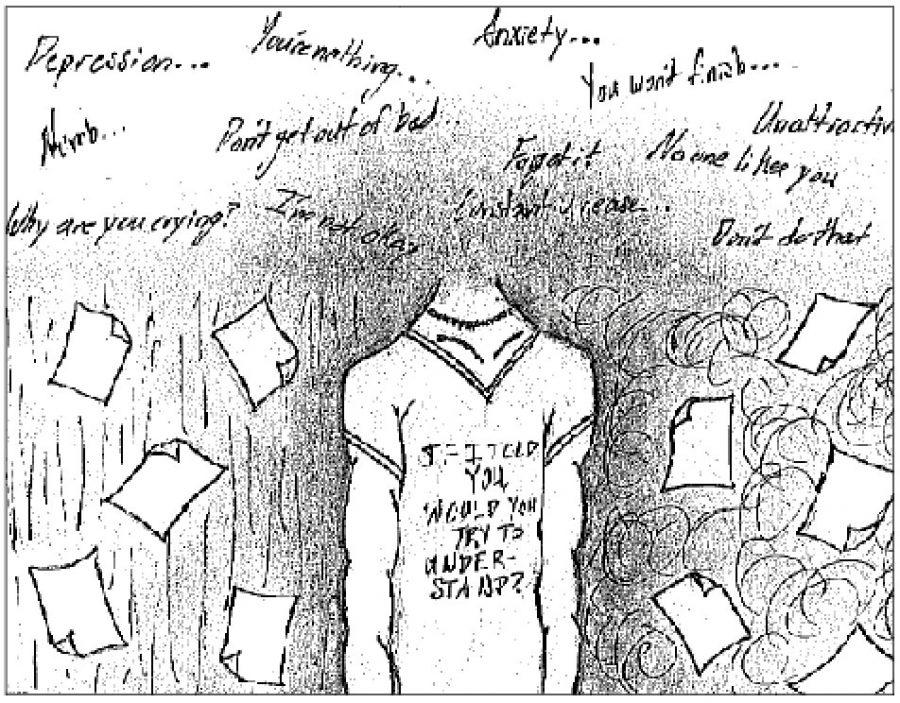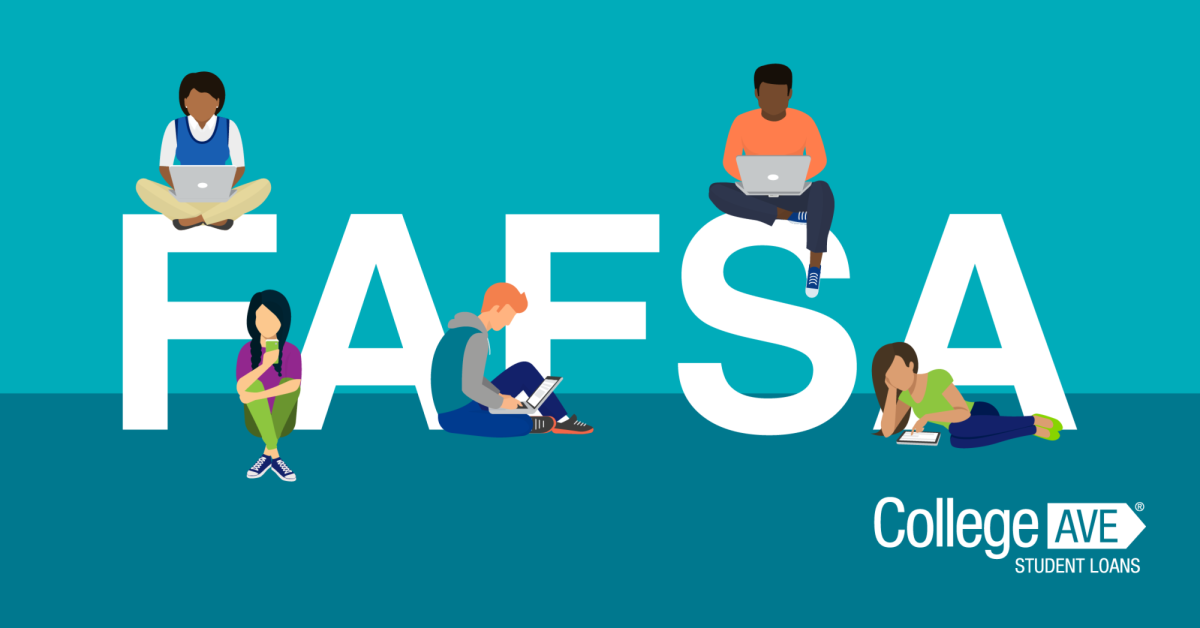Abril Beccera clearly remembers what it was like to sit across the desk of her counselor last year. As an AVID (Advancement Via Individual Determination) student who cared about her grades, failing three classes overwhelmingly worsened her anxiety and depression— what had brought her there in the first place. Not knowing what to do, she turned to her assigned counselor, Mr. An Nguyen, for help.
“I wanted to explain to him that I had a down point,” Becerra said, “But I didn’t know how. Teachers don’t seem to know if I’m struggling with depression or anxiety. They don’t see it. It’s hard to express the trouble I’m having without thinking that they’ll inform my parents.”
Many students have at least one fear– something that forces them to question their life or choices. But what if that something is themselves? Students with mental illnesses such as depression, anxiety and bipolar disorder face this difficulty every day. Although most want help, they often keep it to themselves out of fear of making it worse by involving others.
Mental illnesses are a struggle that can affect anyone at any age. According to the National Association of Mental Illness, (NAMI), 20 percent of young adults struggle with some type of mental illness, making it likely that there is at least one student secretly struggling in every class. Depression, anxiety and bipolar disorder are among the three most common mental illnesses in the United States, according to NAMI.
Although attending school, making good grades, and being involved is expected of most young adults, many know that this is far more difficult when struggling with personal problems that one cannot share with their teachers.
Becerra has experienced several seasons (time periods of struggle with a mental illness) of depression and anxiety and knows that these times can make school more difficult. What did help, she said, was finally opening up to her teachers and asking for assistance.
According to NAMI, depression is defined as a “serious mental health condition that requires understanding and treatment,” often characterized by bouts of often sometimes unexplainable sadness. Anxiety is defined by feelings of stress, unease or nervousousness that can trigger panic attacks and and inability to focus.
Studies by the NAMI show that 50 percent of students with a mental illness will drop out of high school. This number is lessened considerably, however, if students are open about their struggles with mental illness. Without support, student’s grades often suffer, leaving them even worse off. With so many personal difficulties, Becerra agreed that it is easy to push school aside as a priority.
Junior AVID and English teacher, Ms. Alexis Walters, said she understands that students may feel uncomfortable coming to a counselor or teacher, but it is the best option to help them get through difficulties.
“Every student should be treated differently based on their situation, simply everyone is different,” said Walters. “The struggle doesn’t even have to be a mental illness. [Recently] a student came to me and expressed a challenge that they were facing at home. I have been helping them make sure their grades don’t slip, and letting them know I’m here to help them.”
Walters expressed that her students should talk to someone on campus, and that she is there to help them as much as she can.
As for other teachers, many agreed that they want to be there for students and that most information can be kept confidential unless it breaches one of the few things they must report.
“Other teachers are willing to do this for their students, and most of the time, again depending on the situation, we don’t have to report it,” Walters said. “If we think the counselor should be told, we will tell them and let them do what they’re trained to do.”
Although Spring Valley currently has no programs that directly assist students with mental illnesses, teachers and counselors emphasized that tutoring is available after school to help these students if personal struggles are affecting their grades.
“Teachers can help you. You just have to let us know,” said Mr. Nathan Pangelinan, a psychology and AVID teacher at Spring Valley. “There are 200 students in class and it’s hard to point out. Students just need enough courage to at least tell someone.”
Junior Counselor, Mr. Nguyen understands that having patience and being able to sit and listen to a student is important.
“We can have a sit down with the student’s teachers together,” he said. “Which can give them the opportunity to have their assignments broken down for them. There is also APEX and summer school that we can offer students who need to make up credits. With students we figure out their goals and objectives. Then we give them the offer to go through worth the options we can provide for them.”
Counselors understand that many students are afraid to tell someone about their difficulties. Despite that fear, the best way to get help is to ask for it, Nguyen said.
“If I could tell students something, it would be to let people know, and be aware of it,” Nguyen said. “If you don’t tell anyone, how do we identify you?”










